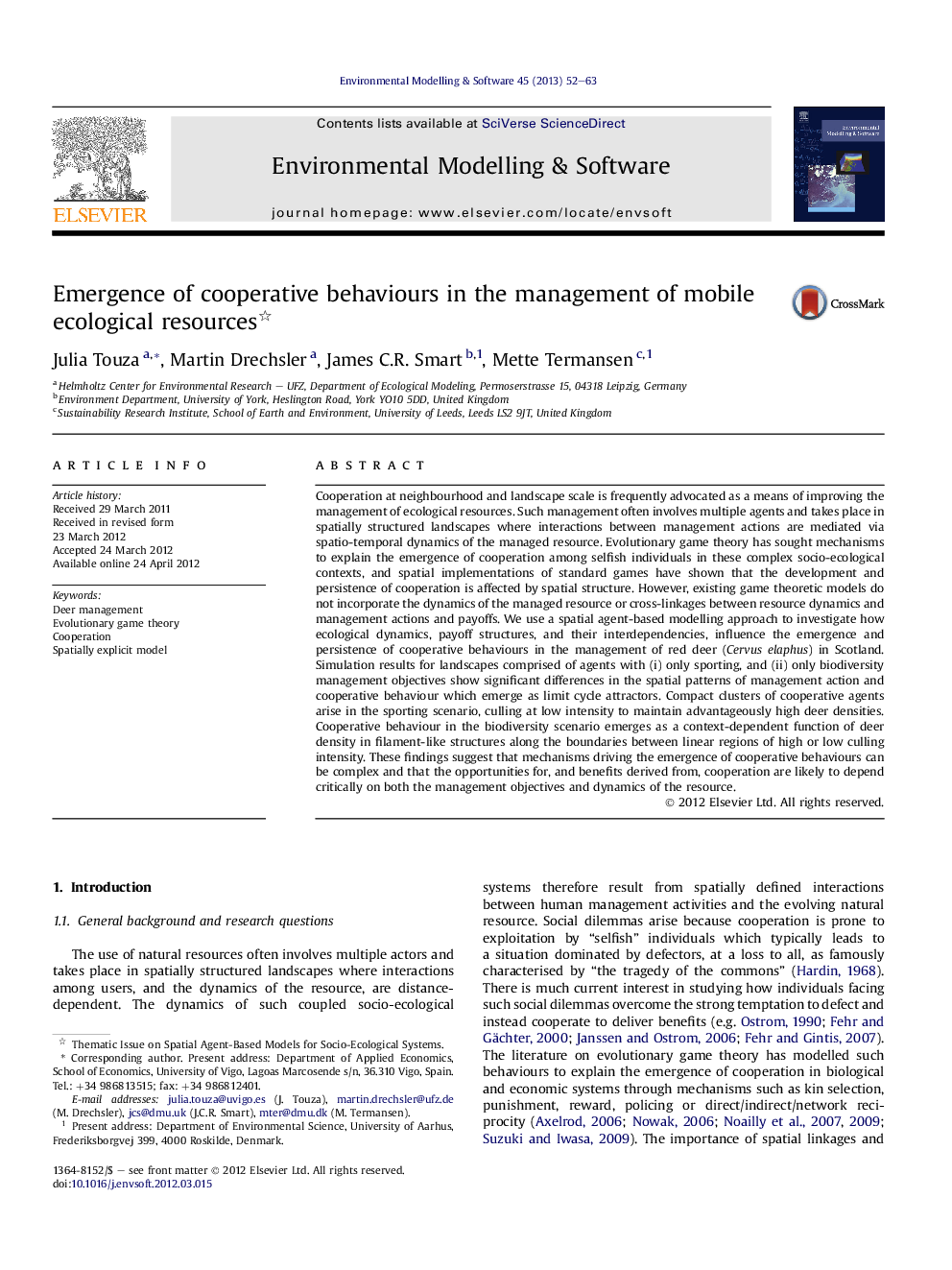| کد مقاله | کد نشریه | سال انتشار | مقاله انگلیسی | نسخه تمام متن |
|---|---|---|---|---|
| 6964418 | 1452305 | 2013 | 12 صفحه PDF | دانلود رایگان |
عنوان انگلیسی مقاله ISI
Emergence of cooperative behaviours in the management of mobile ecological resources
ترجمه فارسی عنوان
ظهور رفتارهای تعاونی در مدیریت منابع زیست محیطی تلفن همراه
دانلود مقاله + سفارش ترجمه
دانلود مقاله ISI انگلیسی
رایگان برای ایرانیان
کلمات کلیدی
مدیریت گوزن، تئوری بازی تکامل همکاری، مدل کاملا صریح،
موضوعات مرتبط
مهندسی و علوم پایه
مهندسی کامپیوتر
نرم افزار
چکیده انگلیسی
Cooperation at neighbourhood and landscape scale is frequently advocated as a means of improving the management of ecological resources. Such management often involves multiple agents and takes place in spatially structured landscapes where interactions between management actions are mediated via spatio-temporal dynamics of the managed resource. Evolutionary game theory has sought mechanisms to explain the emergence of cooperation among selfish individuals in these complex socio-ecological contexts, and spatial implementations of standard games have shown that the development and persistence of cooperation is affected by spatial structure. However, existing game theoretic models do not incorporate the dynamics of the managed resource or cross-linkages between resource dynamics and management actions and payoffs. We use a spatial agent-based modelling approach to investigate how ecological dynamics, payoff structures, and their interdependencies, influence the emergence and persistence of cooperative behaviours in the management of red deer (Cervus elaphus) in Scotland. Simulation results for landscapes comprised of agents with (i) only sporting, and (ii) only biodiversity management objectives show significant differences in the spatial patterns of management action and cooperative behaviour which emerge as limit cycle attractors. Compact clusters of cooperative agents arise in the sporting scenario, culling at low intensity to maintain advantageously high deer densities. Cooperative behaviour in the biodiversity scenario emerges as a context-dependent function of deer density in filament-like structures along the boundaries between linear regions of high or low culling intensity. These findings suggest that mechanisms driving the emergence of cooperative behaviours can be complex and that the opportunities for, and benefits derived from, cooperation are likely to depend critically on both the management objectives and dynamics of the resource.
ناشر
Database: Elsevier - ScienceDirect (ساینس دایرکت)
Journal: Environmental Modelling & Software - Volume 45, July 2013, Pages 52-63
Journal: Environmental Modelling & Software - Volume 45, July 2013, Pages 52-63
نویسندگان
Julia Touza, Martin Drechsler, James C.R. Smart, Mette Termansen,
